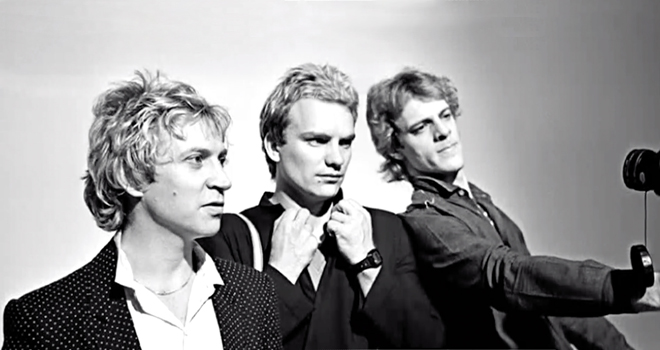
An amazing time both for the members of the band and their fans alike, it has now come to light that in between dazzling behind the drum kit, Copeland was documenting it all on film. Recorded on super 8 film, for the better part of two decades the hours of footage have been tucked away until the mid 2000s when Copeland dusted it off and transformed it into the one of a kind Documentary Everyone Stares.
Providing exclusive insight into the world of the band, from their humble beginnings to their rise to the top, it is all a reminder of just how special The Police are. Taking the time to chat about it all, Stewart Copeland explains the story behind Everyone Stares, the creative ideology of The Police, the prospective of a reunion, plus so much more.
Cryptic Rock – The Police have attained multi-platinum records and toured the world over, going on to become one of the biggest bands of the 1980s. An amazing story of success, briefly tell us, how would you describe the journey of the band?
Stewart Copeland – Well, very exciting. It was not so much a roller coaster ride as much as a rocket ship ride. We kind of quit before the other side of the parabola revealed itself; I guess we quit at right about the right time. I think the sensation is pretty much captioned in my little movie, back before we amounted to anything and were still in hotels playing clubs, when I got this movie camera. It got stuck to my eye for the next 8 years, so our whole lives through to the stadiums was captured on this little camera.
Really the sensation of shooting it was, I was like a tourist; I would scrap off this adventure as we went back, cram it into my pocket, take it home, and play with it later. Which turned out to be not so easy to do, because the super 8 footage is celluloid but there is no negative – so every time you look at it you scratch it a little bit. I soon realized that, so I put it in shoeboxes and forgot all about it for about 20 years, until they invented computers.
The footage I got is very different than your regular documentary for a couple of reasons. For one, it starts way before we were worth anything, so I got those early days. The main thing is, in a normal documentary, the camera is here and the band is there; in this case the camera is in the band. You actually have the guitarist shouting at you because you’re playing too fast, you have the fans screaming right into the camera. When you watch it, it’s sort of like a first-person shooter.
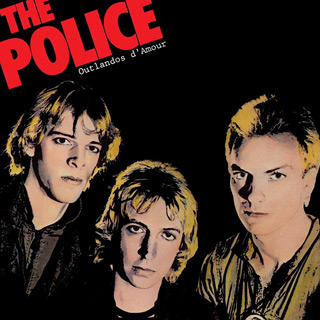
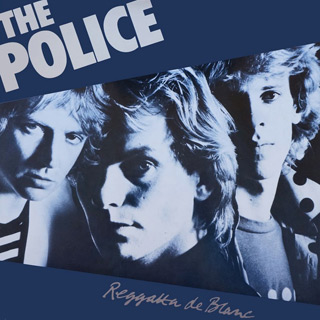
Cryptic Rock – It is very interesting. The film you are talking about is now known as the documentary film Everyone Stares which is set for release to Blu-ray on May 31st. What lead to the decision to at last put the material together for this film?
Stewart Copeland – Well, they invented computers and that meant it was possible to actually digitize the footage – actually 52-hours of footage. Then, not only did they invent domestic computers, but cheap memory hard drives, and applications to cut the pictures up with; Final Cut Pro. I love applications and I will cut things up in Final Cut Pro, Pro Tools, and Photoshop. In fact, I started by cutting up movies of my children playing on the beach, a sort of fun way to play with your children is to cut up movies of them. Then I remembered I cut this super 8 footage and wondered what that looks like, so I digitized some of that, and whoa, that looked cool.
Then I got on a mission and ended up cutting this little home movie. My buddy Les Claypool suggested I send it to Sundance, which I did, and the night before Thanksgiving I get a phone call from the festival inviting my film to the Sundance Film Festival. Then everything changed: then my little home movie became a monster, it became Police product. At that time, I hadn’t thought about the old band in 20 years and neither had my two colleagues. We had all gotten on with our lives; I had a career now as a film composer. Part of which, to succeed as a film composer, I had to erase that rock star guy because nobody wants to hire a rock star.
Then when the film came out, bam, it turns out I forgot, but guess what? The Police is a thing! When they screened it at Sundance, the place went crazy. Sting was actually in town at the same time promoting a film that he was producing with his wife Trudy, so the three blonde heads were there. Someone took a picture, and all three of us were blown away that this band we had been in 30 years previously was still a thing.
Cryptic Rock – It is fantastic you were able to document those early days of the band. When you had to go back to put this together, what was it like going through those memories?
Stewart Copeland – It was a relief! It was a relief to be reminded that most of what we did was laugh and chuckle. We enjoyed each other’s company and had a hell of a ride. For some reason you remember the hard times more than the good times, and it was great to be reminded of the good times. I guess I didn’t pick up my camera when we were screaming at each other. Mostly when the cool stuff was happening, that’s when I grabbed my camera. It was very cheerful to be reminded of what a fun ride it was.
Cryptic Rock – That is great that it brought back fond memories. With the documentary complete, have you considered making a biopic about The Police?
Stewart Copeland – Well the problem with that is, dramatically, if it was to be scripted and played by actors, there is no story. Three mercenaries got together, made some great music, conquered the world, broke up, and lived happily ever after. Nobody died, nobody ran off with the other guy’s wife; nothing colorful or interesting really happened, other than it was really successful. The music is interesting, everyone loves the music, but the story of how we made the music, there’s not much to it.
My little movie, which is the documentary, is not that dramatized story of someone running with the other guy’s wife: it’s what it was like to be on that rocket ship. The movie is chronological: it’s not rocket science, but it’s a rocket experience to feel it, to experience what that was like to be in a band going through that ride. I think my little movie takes care of it.
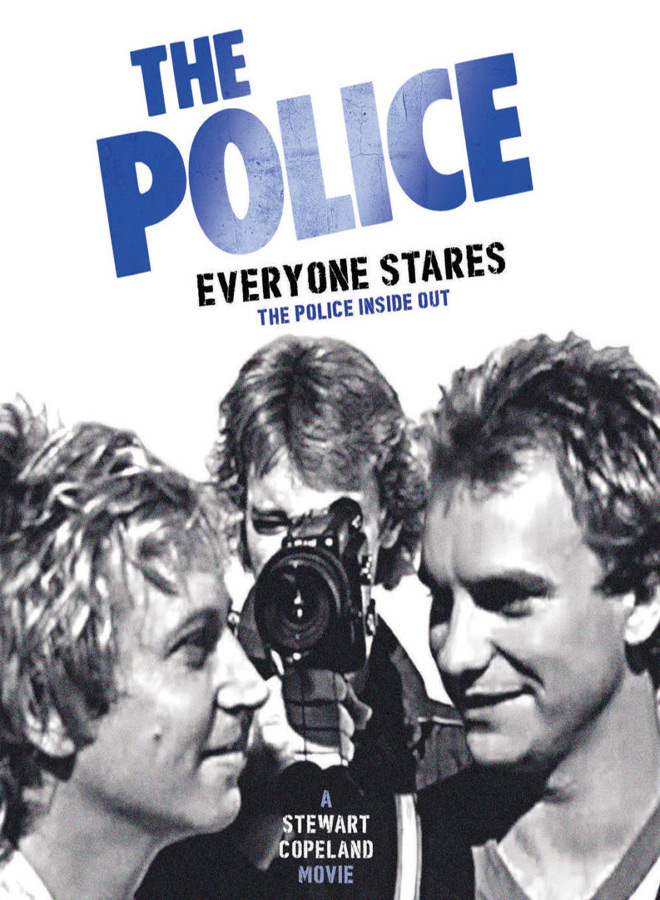
Cryptic Rock – Right, and fans are going to love it once more get to see it. You mention the music, and the music of The Police was always very unique. It was a hybrid of styles that united Rock, Punk, Reggae, and Pop. What inspired the band’s direction from album to album?
Stewart Copeland – We were creative individuals with a lot of ideas and we inspired each other, as well. We weren’t three guys from the same village who grew up loving the same music: we were three mercenaries with very different ideas of what music is for, let alone what music we like. That contrast is what produced a multifaceted band.
Cryptic Rock – It certainly did. Beyond The Police you would go on to have a very successful solo career composing for film and video game soundtracks ,and even writing music for operas, ballets and orchestras. As a musician, what would you say are some of the most important things you have learned from your experiences?
Stewart Copeland – That writing music is very different than playing music. That there are two different guys involved in my own music: the composer dude is completely different than the drummer dude. Also, out in the world, there’s two different families of music: there are musicians of the eye and musicians of the ear.
The musician of the ear are the Rock players who stare off into space and connect to the music with their ears. They just know when 8 bars are up; they don’t look at the page of the music, they’re not reading the music. They just know it, and debate what the arrangement is and figure it out collaboratively – which is very inspiring, but also very laborious.
The other kind of musicians are the musicians of the eye, and they connect with the music with their eyeballs on a page of music. They’re focused on visual cues, even the rhythm is the visual cue of the conductor’s baton. Sure, they’re listening, but mainly it’s the way that connects them. These are orchestral players and they’re really great fun to play with, because if I do my homework and create the page for them and put exactly every note they’re going to play on the page – not what notes but how they’re going to play them – it’s going to be great. They are going to be right on the money and since all 65 of them are right on the money, I can go ape crazy; I can play it upside down, backwards, this and that because the music, the band, the orchestra is exactly right on the money where the page holds them together.
With Rock bands it’s much more improvisational, every member of the band is screwing around, and that is sort of what you came for.

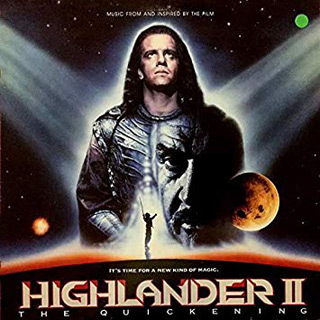
Cryptic Rock – Those are two very different but compelling dynamics. In recent years, you actually formed a new band with a great group of musicians including Mark King of Level 42. So how is Gizmodrome going for you?
Stewart Copeland – That was some great summers in Italy. We made a record and played some really fun shows. In fact, we are putting together a live album of those shows. Gizmodrome is the worst band name in history it turns out. We used to be called Gizmo because we were just playing in Italy. Every summer I would go to Italy and we would just do shows there for no purpose, the agenda was pasta; no record company, no product, we would just be over there playing shows. Then someone came up with some money for us to record a record and we made an album. Once you get a proper album out in the world, it ends up there are 10 other bands called Gizmo, so we had to come up with something else and we came up with Gizmodrome – which sucks.
We still go back to Italy and play those fun shows. The cool part about it is I get to play guitar and sing at the front of the stage. I play some drums too, but we have Pete Ray Biggin, who is Mark King’s drummer in Level 42. The kid is hot: he makes me feel like an old lion who’s real glad to have a young lion around the house to kick some ass. That kid kicks ass! That’s what Gizmodrome is all about.
Cryptic Rock – Very cool. The Gizmodrome album came out 2017, so it will be great to see you get out with that again too.
Stewart Copeland – Yeah, we will get back to that soon enough. I have got all kinds of things on my plate right now, but we will definitely get back to that one.
Cryptic Rock – It seems like you have a lot going on. With Everyone Stares set for release, we all remember The Police did a special reunion tour back in 2007 and 2008. It is now over a decade removed from that tour and we recently celebrated the 40th anniversary of 1978’s Outlandos d’Amour last year, and the 40th anniversary of 1979’s Reggatta de Blanc is coming in October. So, is it possible another Police reunion could happen?
Stewart Copeland – Sure, there’s no reason for it to not happen, but there is no plan to make it happen. We’re all doing cool stuff, and, at some point, I can’t see any reason why we wouldn’t do that. It is something we don’t do lightly, because it completely subsumes everything; The Police is like the dark planet. When we did the reunion tour, although it was really exciting to play to 80,000 people with songs that just light the place up, everything else about our lives had to be on hold for the duration. Something as humongous as The Police just eats everything in its path. It’s like joining the army: just hang up everything you’ve got going on for the duration. That’s not so easy to do all the time. We did it that time and it was really very rewarding and we enjoyed it, but we’re not itching to get back out there and do it again right away. Although, it certainly seems like something we should go back to!
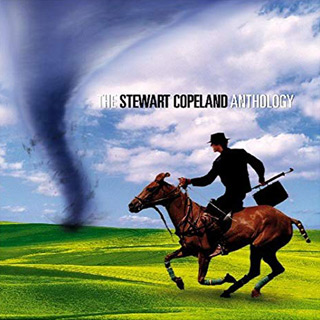
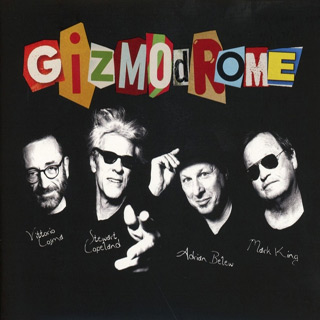
Cryptic Rock – It would be exciting to see. It’s understandable that it can be extremely consuming. The film may even ignite even more interest in The Police yearning for another reunion.
Stewart Copeland – Yeah, we’ll check that out! Check the station later, I would guess.
Cryptic Rock – You never know what may happen! Last question. Beyond music, we also cover movies, particularly Horror and Sci-Fi films. If you are a fan of these genres, do you have any favorites?
Stewart Copeland – I like to watch Sci-Fi. I prefer old ones where they were matching science, rather than the new ones with CGI and they can do everything. They don’t need to leave anything to the imagination, because they can create whatever with CGI. In a way, the CGI has kind of killed a lot of the mystique, but I’m just an old fart talking.
One of my missions is, I got the original celluloid of the 1925 black-and-white silent film called Ben-Hur: A Tale of the Christ, which was huge, a cast of tens of thousands. I did an orchestral score for it. It’s interesting that the movie doesn’t have any CGI, but it does have two giant ships crashing into each other. One of them bursts into flames, sinks, and those are real Italian extras floundering in the water. This is all happening right in front of the camera – it really happened, folks! You’re watching 20 cameras film this event; there is no retake of that, there is no CGI. It has a lot more impact than the same scene would have with CGI with 200 pirate ships all bursting into flames. Actually seeing it happen in front of you is a lot more exciting!
For more on The Police: thepolice.com | Facebook
For more on Stewart Copeland: stewartcopeland.net | Facebook | Twitter | Instagram
Purchase Everyone Stares Here
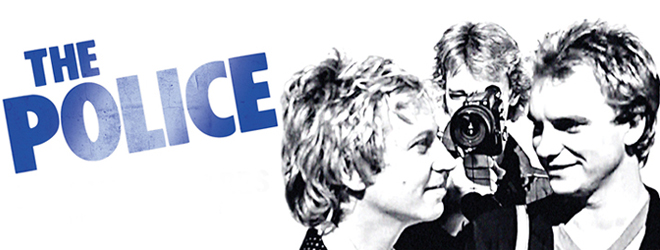
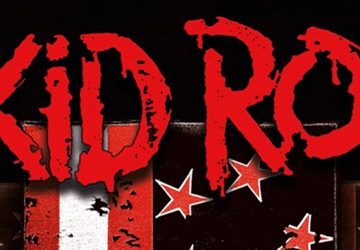
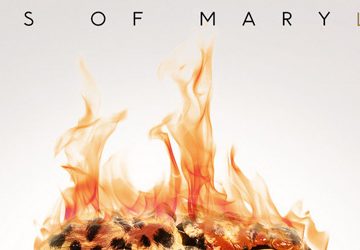


No comment